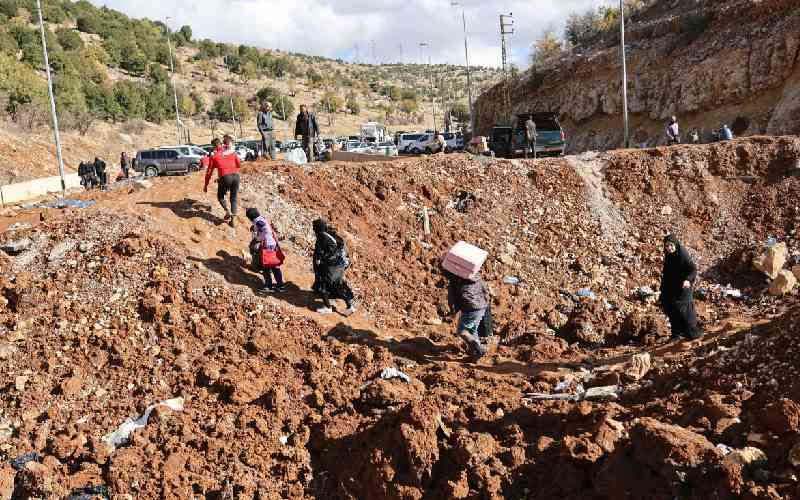×
The Standard e-Paper
Kenya’s Boldest Voice

Stuck in no man's land on the war-hit Lebanon-Syria border, cab driver Fadi Slika now scrapes a living ferrying passengers between two deep craters left by Israeli air strikes.
The journey is just two kilometres (about 1.2 miles), but Slika has no other choice -- his taxi is his only source of income.